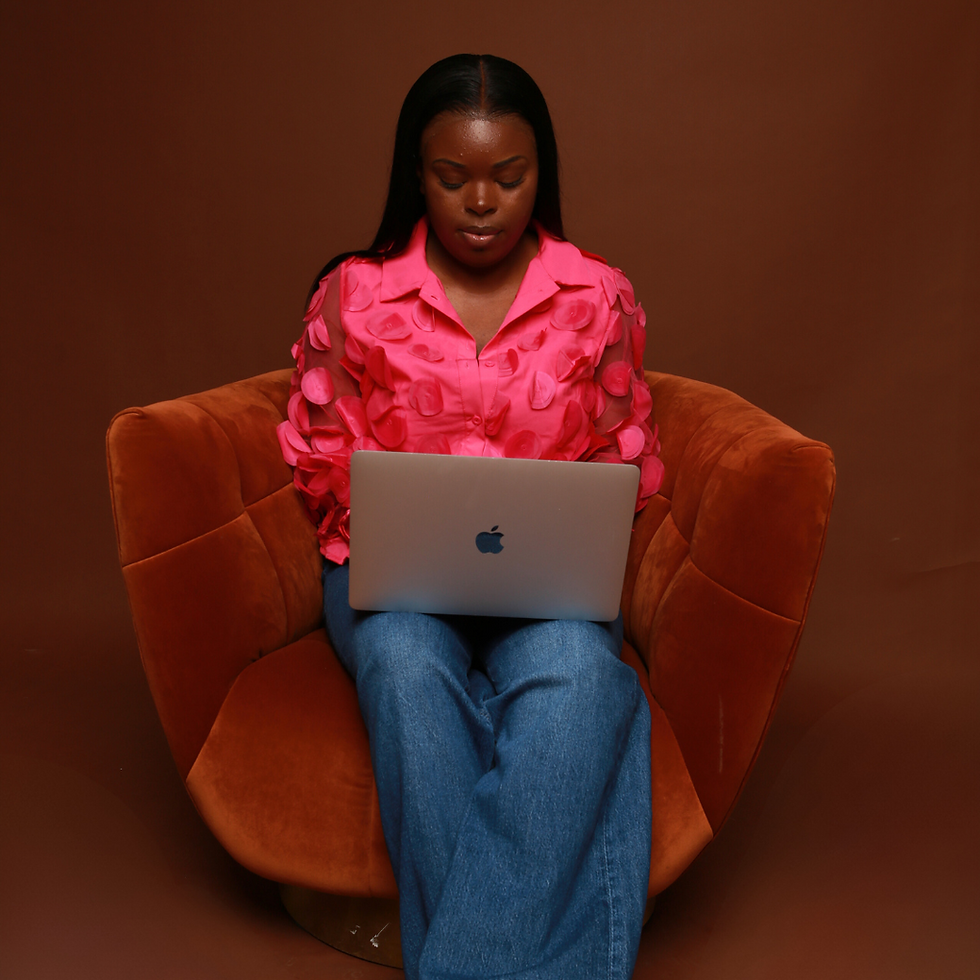How Setting Workplace Mental Health Boundaries Saved My Career ❤️
- Dear Women CIC

- Oct 10, 2024
- 4 min read

Ever felt like being great at your job is slowly draining the life out of you? 🤔 You’re not alone. Nearly 875,000 UK workers suffered from work-related stress, depression, or anxiety last year. And yet, we keep pushing through, right?
I used to be that person who said “yes” to everything… until I realised my dedication was destroying my mental health. Here’s what happened and how I finally took control 👇🏾
"Just Because I Can, Doesn't Mean I Should" - Kheri-Ann Wiggins
Have you ever been in a position where your ability to deliver became a burden? Where showing up at your best meant shutting down every other part of yourself?
That was me.
For the last two years, I worked as an Executive Assistant for a man who had been my youth ministries leader, boss, mentor, and — to some extent — a friend. The role should have been familiar territory, but it quickly became an overwhelming emotional experience. I didn’t just take on tasks; I took on his burdens, feelings, and frustrations as if they were my own. For someone like me — an empath — this meant absorbing other people’s emotions and feelings so intensely that they almost became part of my own reality. I was constantly juggling other people’s sadness, happiness, pain, and stress, and it began to take a toll.

The Unseen Weight of an Over-Achiever - Why Setting Workplace Mental Health Boundaries Is Essential for High Achievers 👇🏾
In many ways, I was proud of my performance and dedication. But as I excelled, I noticed that I was slowly suppressing my own needs just to keep up the appearance of having it all together. My well-being was fading into the background, overshadowed by a desire to be seen as reliable, capable, and always available.
But what needs was I really suppressing?
The need to decompress when heated arguments filled my household, but never having the time to unwind because there was ‘always work to do.’
The need to socialise with friends and family, but feeling pressured to support my mum with the mortgage, convincing myself that I ‘must’ keep working to pay the bills.

I was prioritising work over everything else. But to what detriment? What was I sacrificing to fit this image of perfection?
I wished — still do, to be honest — that more employers valued the emotional and mental well-being of their staff.
That they saw people like me, who are always working and took a moment to say, “Kheri-Ann, I see how hard you’re working. Why don’t you take a break?”
But is that a reasonable or realistic request?
From “Yes Woman” to Empowered Advocate
I once pictured my role as an EA like being an on-call doctor — constantly available and always saying "yes" to anything that was asked of me. I was the person who would get things done without question, even when I was completely drained and overwhelmed.
It’s easy to see now that I was allowing people to cross lines I hadn’t even realised I’d drawn. The hard truth? People can only cross boundaries that you allow them to.
In the early stages of this role, I had no boundaries. I would jump off a cliff, blind and without hesitation if asked. Over time, this “yes woman” mentality pushed me further into burnout and left me feeling powerless, overworked, and resentful.
I started questioning myself:
Why was I constantly doing the most?
Why did I feel compelled to say yes to another task even when it was way past my working hours?
Something had to change. And this time, it wasn’t going to be me.
The 4 Steps I Took to Protect My Peace
Reclaiming my boundaries wasn’t easy, but it was necessary. Here's how I started:

Acknowledged How I Felt:I took a moment to write down all the feelings I had been suppressing — exhaustion, frustration, and resentment. This allowed me to articulate my experience clearly to my boss without guilt or hesitation.
Outlined Why Boundaries Were Important: I visually mapped out what my life would look like if I didn’t enforce these boundaries — constant burnout, decreased performance, loss of joy for my work, and physical and mental exhaustion. This made it clear to me that boundaries weren’t just beneficial; they were necessary.
Practised Saying “No” Professionally: I came up with a few key phrases that would allow me to say “No, I can’t do that” in a warm but firm professional tone. I wrote these phrases on cue cards and kept them on my desk as reminders when I needed a confidence boost.
Made a Decision to Choose Me Consistently: I accepted that my job wasn’t to control how others responded to my boundaries. My job was simply to protect myself and my well-being, even if it meant discomfort or resistance from others. I chose me, every single time.
An Encouragement for You
If you’ve been nodding along because you see yourself in my story, I want you to know this: Your needs and well-being are just as important as the tasks you complete, the clients you please, and the milestones you reach.
Boundaries aren’t selfish — they’re a necessary act of self-care and self-respect. The journey to setting them might be difficult, but remember that protecting your peace is non-negotiable. You deserve to have a life where you don’t feel drained by your own kindness and diligence.
So, the next time you feel the urge to say “yes” out of habit or obligation, take a moment. Ask yourself, “Just because I can do this, does it mean I should?” The answer might surprise you. You've got this. Protect your peace, because nobody else will do it for you. ❤️❤️❤️
If you’re ready to start putting yourself first and receive more insights, tools, and stories like these, join our email list! We’re building a supportive community of Black women just like you, who are committed to resting, recharging, and thriving without burnout. Click here to join now and get exclusive updates straight to your inbox!


Comments